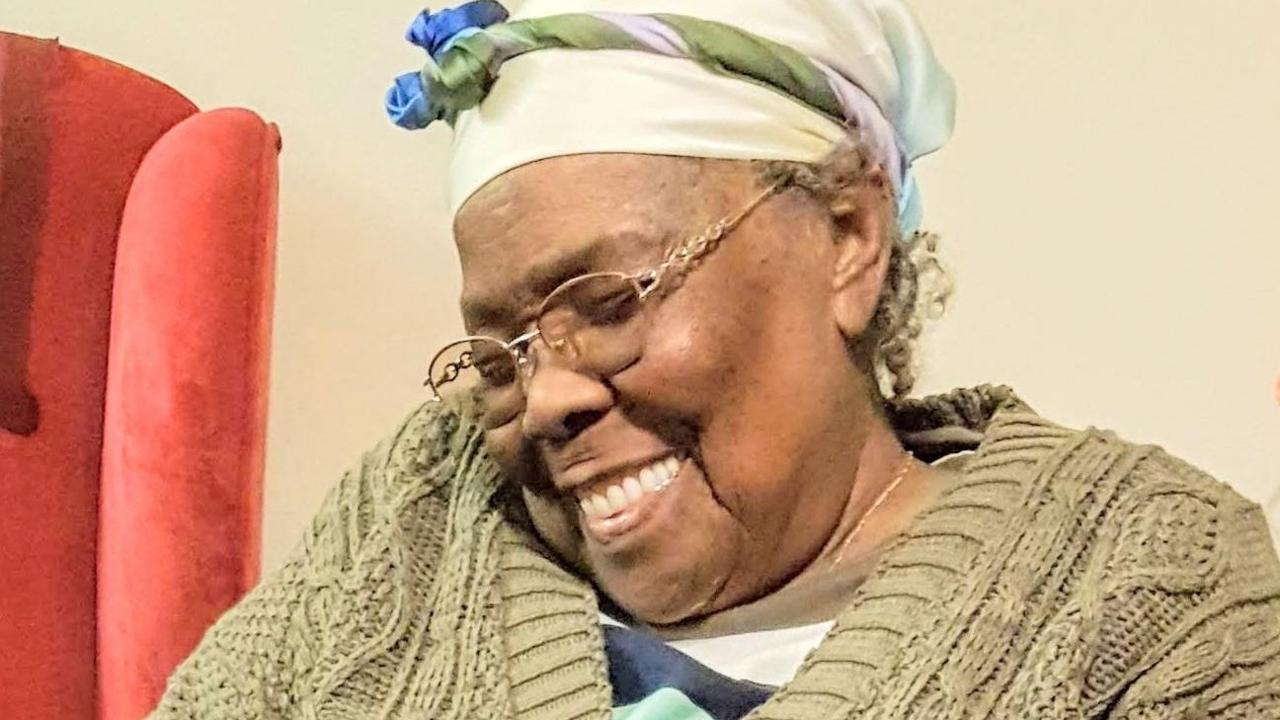Voices of strength echo through Windrush women exhibition
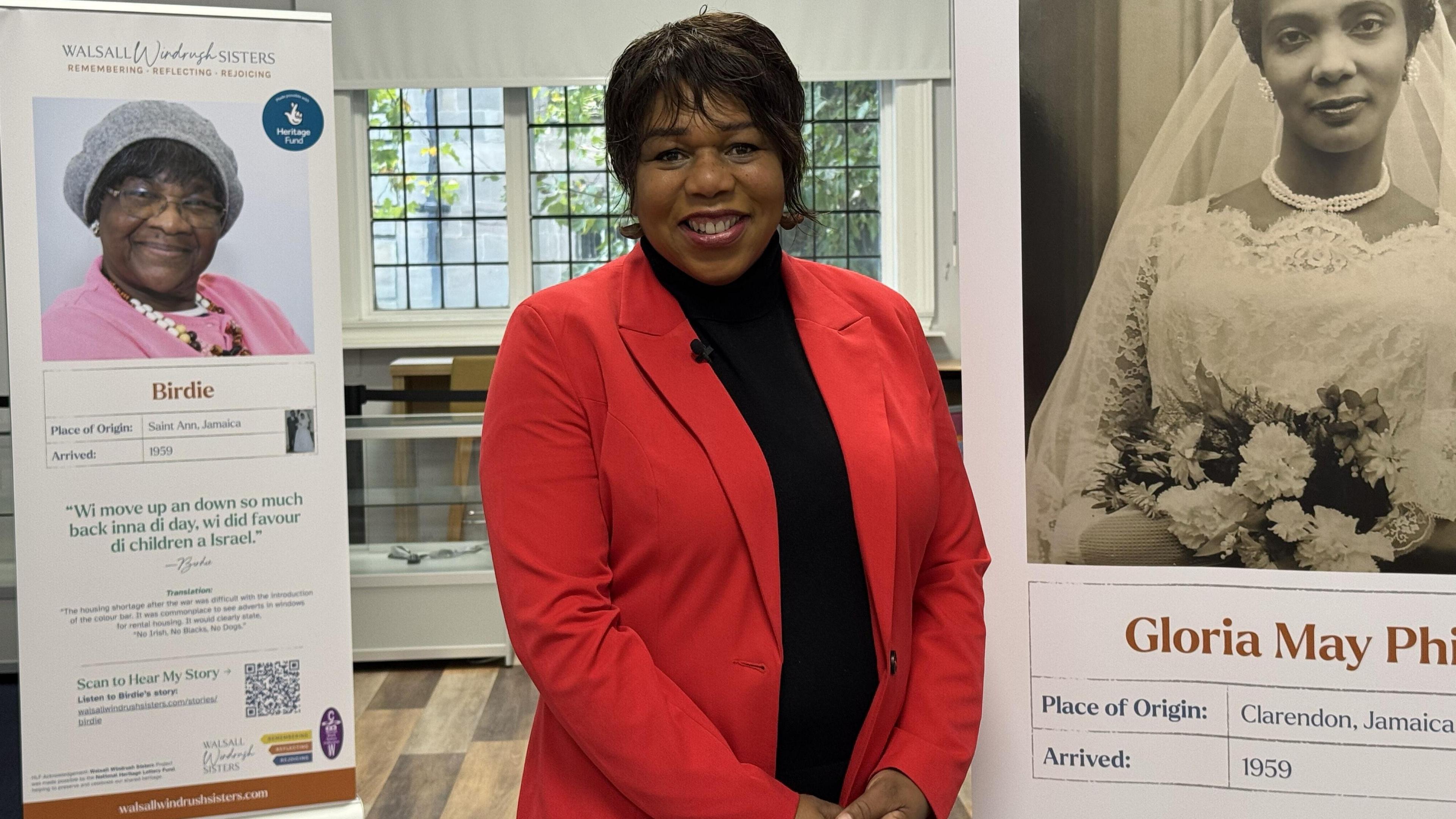
Glenis Williams said the exhibition showed the women's resilience in overcoming barriers
- Published
Untold stories of African-Caribbean women who came to the Black Country during the Windrush era are being shared publicly for the first time - offering a poignant glimpse into lives marked by resilience, faith and quiet resistance.
These women were among thousands who arrived in post-war Britain between 1948 and the early 1970s, invited to help rebuild a nation in ruins after World War Two.
Yet, instead of welcome, many were met with hostility, racism, and systemic exclusion.
Their stories - long buried beneath the weight of silence - are now being preserved by the Walsall Black Sisters Collective, a charity that has supported local families for nearly 40 years.
The oral testimonies, now part of an exhibition at Walsall Hub Library, external on Lichfield Street, reveal the harsh realities faced by Windrush women.
The generation is named after HMT Empire Windrush, which docked in Tilbury, Essex, in 1948, bringing hundreds of passengers from the Caribbean to the UK and which was followed by further ships over the years until 1971.
Glenis Williams, project lead, described the barriers they encountered: "We have stories where families tried to find a home. It was made really difficult by the colour bar.
"No blacks, no Irish, no dogs. We have a continuing story [from them] around finding work and actually being refused work because of their colour."
Despite these obstacles, many told the charity they found strength in community and faith. Church became a sanctuary - a place to gather, to grieve and to grow.
"They told us that going to church has been their backbone, their strength. And actually it shows resilience in how they have overcome barriers," Ms Williams added.
Among the voices featured is Gloria May Phidd.
For Gloria, Britain was a place of rich diversity, where friendships crossed colour and culture without labels.
"Friends were simply friends—not Black, White or Indian," she said.
She recalled a lifelong bond with Wendy, a white childhood friend who became so close to her family that she learned to speak Jamaican Patois, a dialect spoken by the people of the island, fluently.
"Differences blended like flavours in a pot of soup," Gloria reflected.
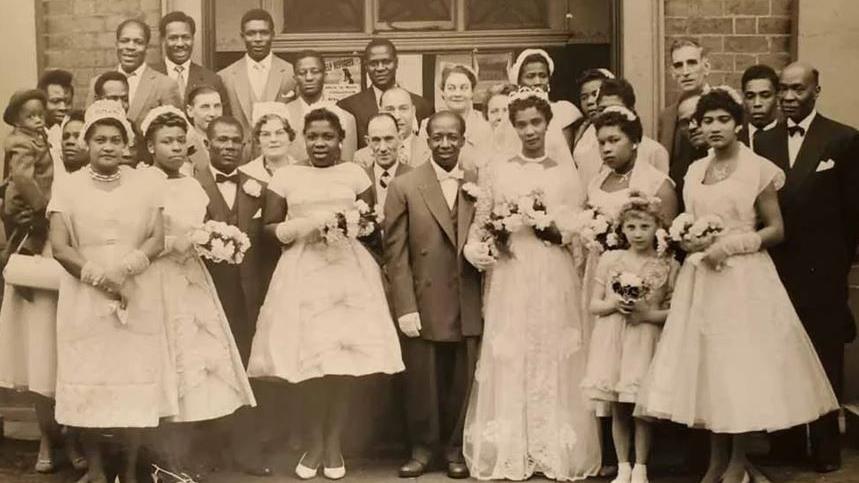
A portrait of Gloria May Phidd's wedding party features in the exhibition
Unlike previous Windrush commemorations, the charity said this exhibition goes further, in training local people to become oral historians and heritage champions, to make sure the legacy of these women lives on.
The collective, founded in 1986, began as a lifeline for Black women seeking support with employment, housing, benefits and domestic violence counselling.
As it approaches its 40th anniversary, staff said its mission remained vital.
Maureen Lewis, their chief executive, said it had not been an easy 40 years.
"Many times we've come to the brink of closure but somehow things get turned around," she said.
"We really appreciate the funds we get from various grant providers.
"Recently, we are seeing increasing mental health issues, we've seen with the cost-of- living crisis, people are struggling to pay the bills. Feed the children, the family.
"So we've had to adapt really to work with these women to make things better for them."
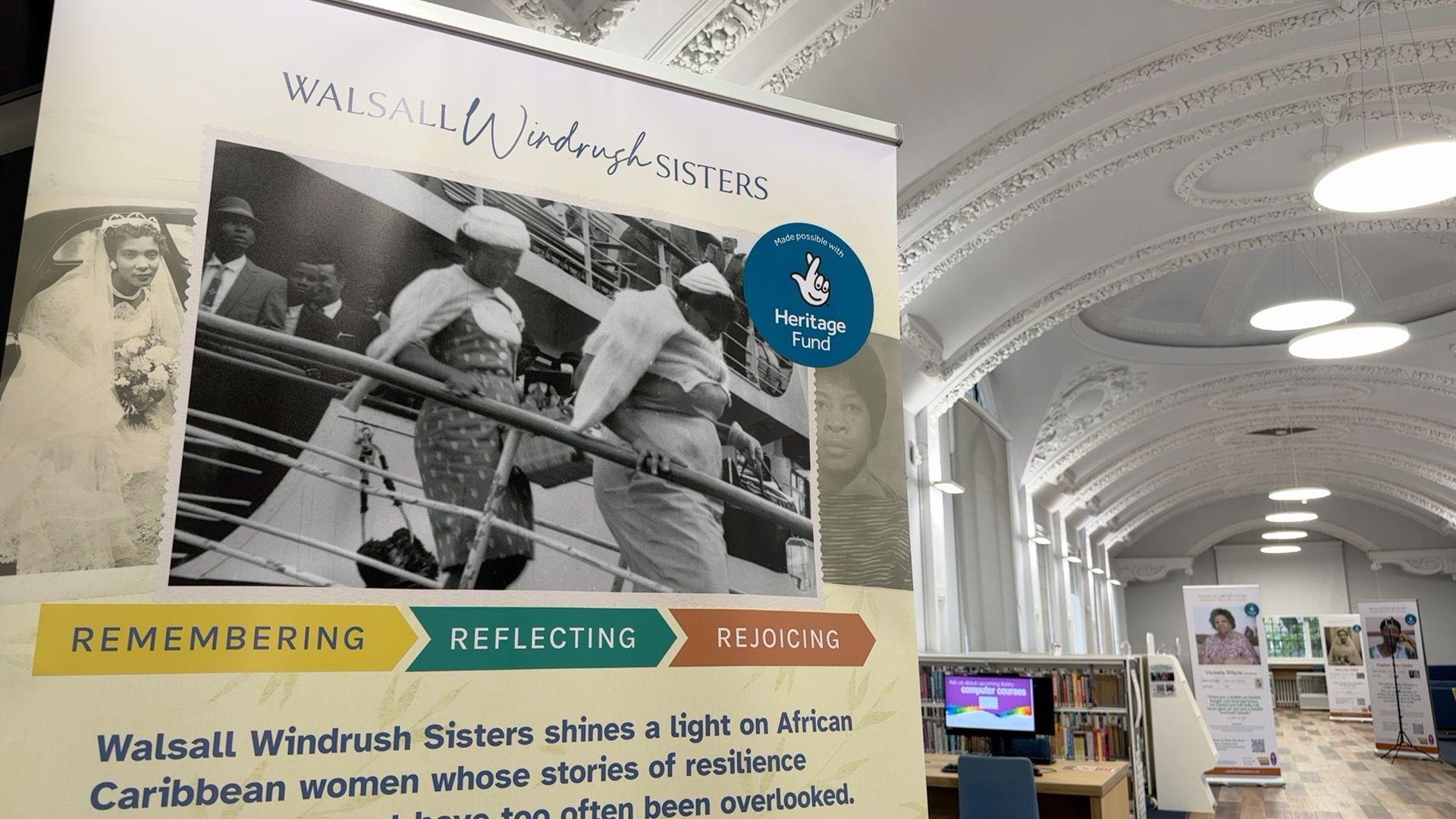
The exhibition is at Walsall Hub Library on Lichfield Street
Beyond exhibitions, the charity also holds weekly coffee mornings, mental health sessions and a day care project for older people.
These initiatives have helped forge a strong network of support for Black women in Walsall and beyond, staff said.
The Windrush exhibition was not just about remembrance, it was about legacy, they added.
Their aim is for it to honour the sacrifices of African-Caribbean women while inspiring future generations to stand firm in their identity and pride.
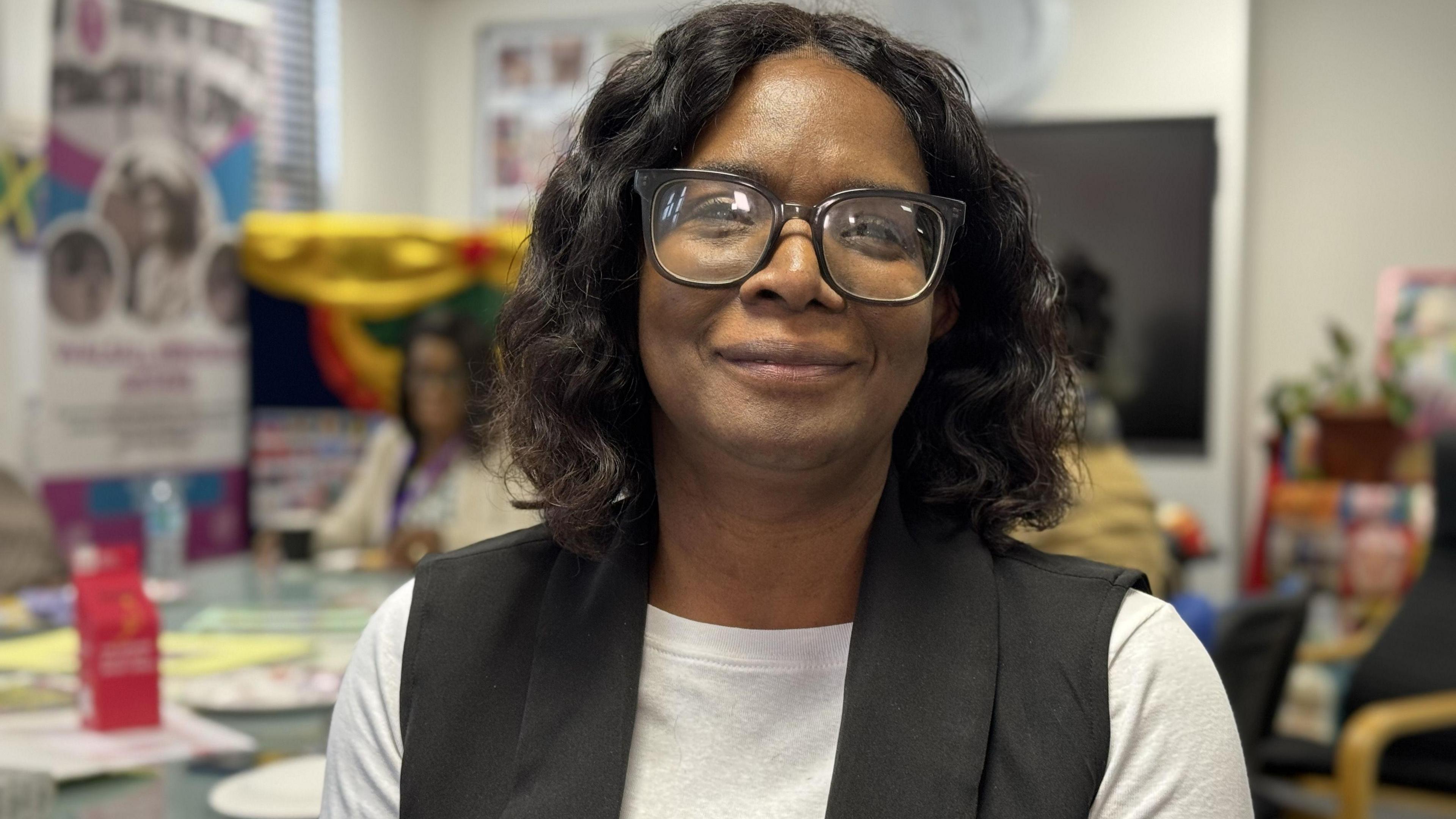
Maureen Lewis, chief executive of The Walsall Black Sisters Collective, said they kept adapting to help women in the area
In the coming weeks, workshops will be held by the charity to help families navigating the Windrush compensation scheme, external.
Established in 2019, the scheme seeks to redress the injustices suffered by Commonwealth citizens wrongly detained, denied legal rights, or deported due to lack of documentation.
A Home Office spokesperson previously said they were committed to running the scheme "effectively".
For Chenise Green, the exhibition is deeply personal
Her grandparents were among those who arrived in the UK during the Windrush era.
"They just worked hard. And they paved the way for us to take care of ourselves and take a holiday because we can relax now - they did that for us, staying immensely strong," she said.
"I applaud them because our society today wouldn't be as advanced without the Caribbeans - they contributed so much to this country. We owe a lot to them."
Get in touch
Tell us which stories we should cover in Birmingham and the Black Country
Follow BBC Birmingham on BBC Sounds, Facebook, external, X, external and Instagram, external.
Related topics
- Published20 June
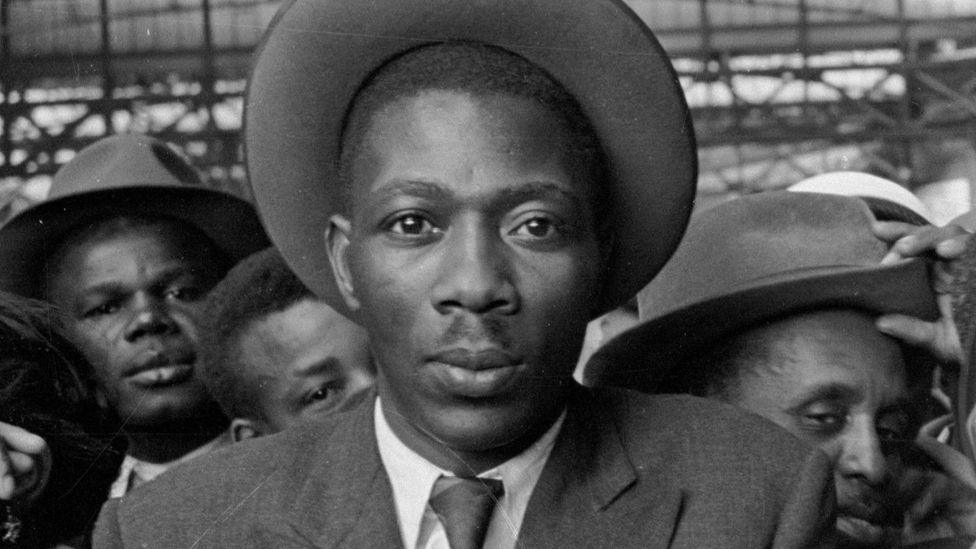
- Published3 July
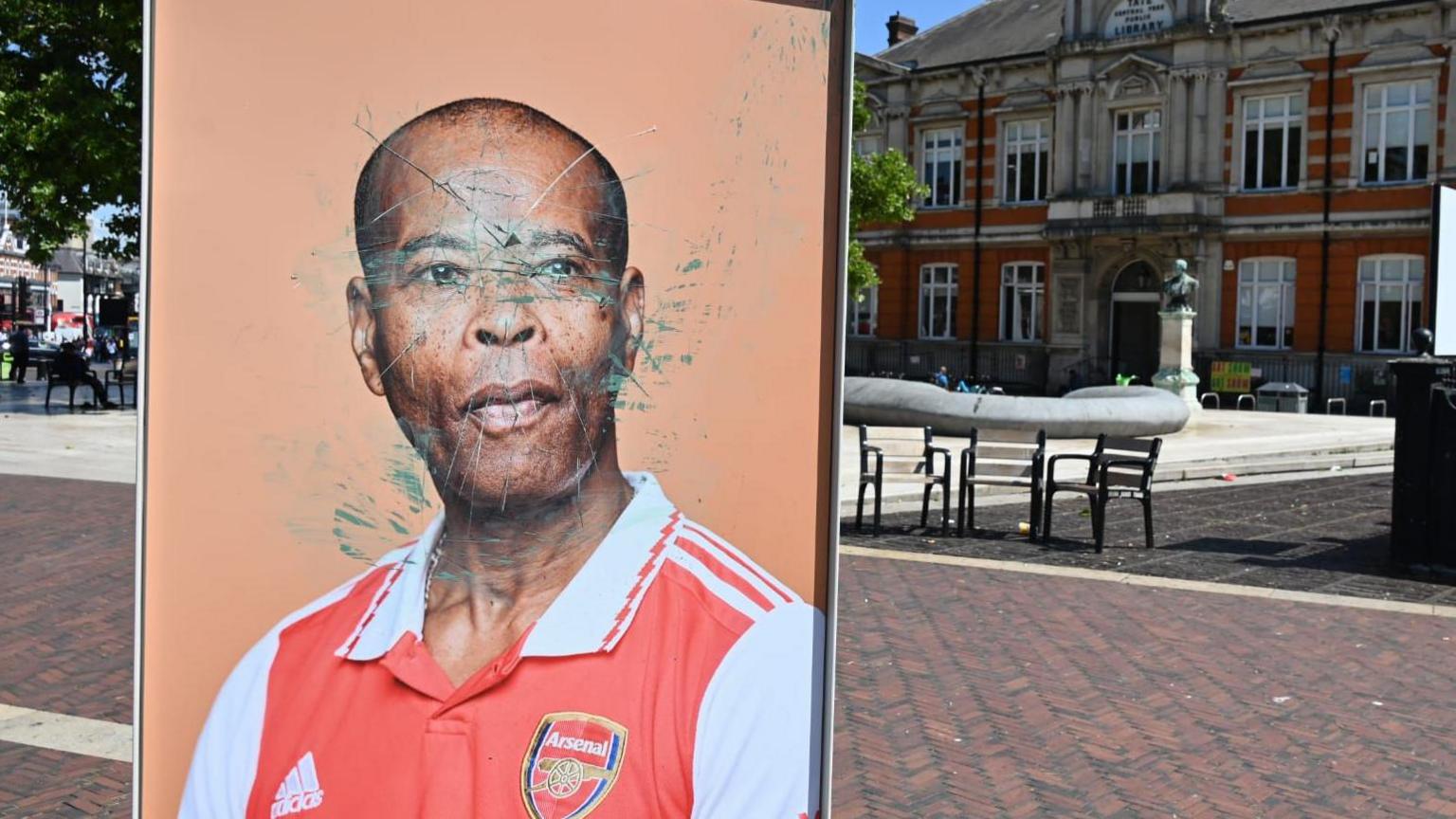
- Published11 October
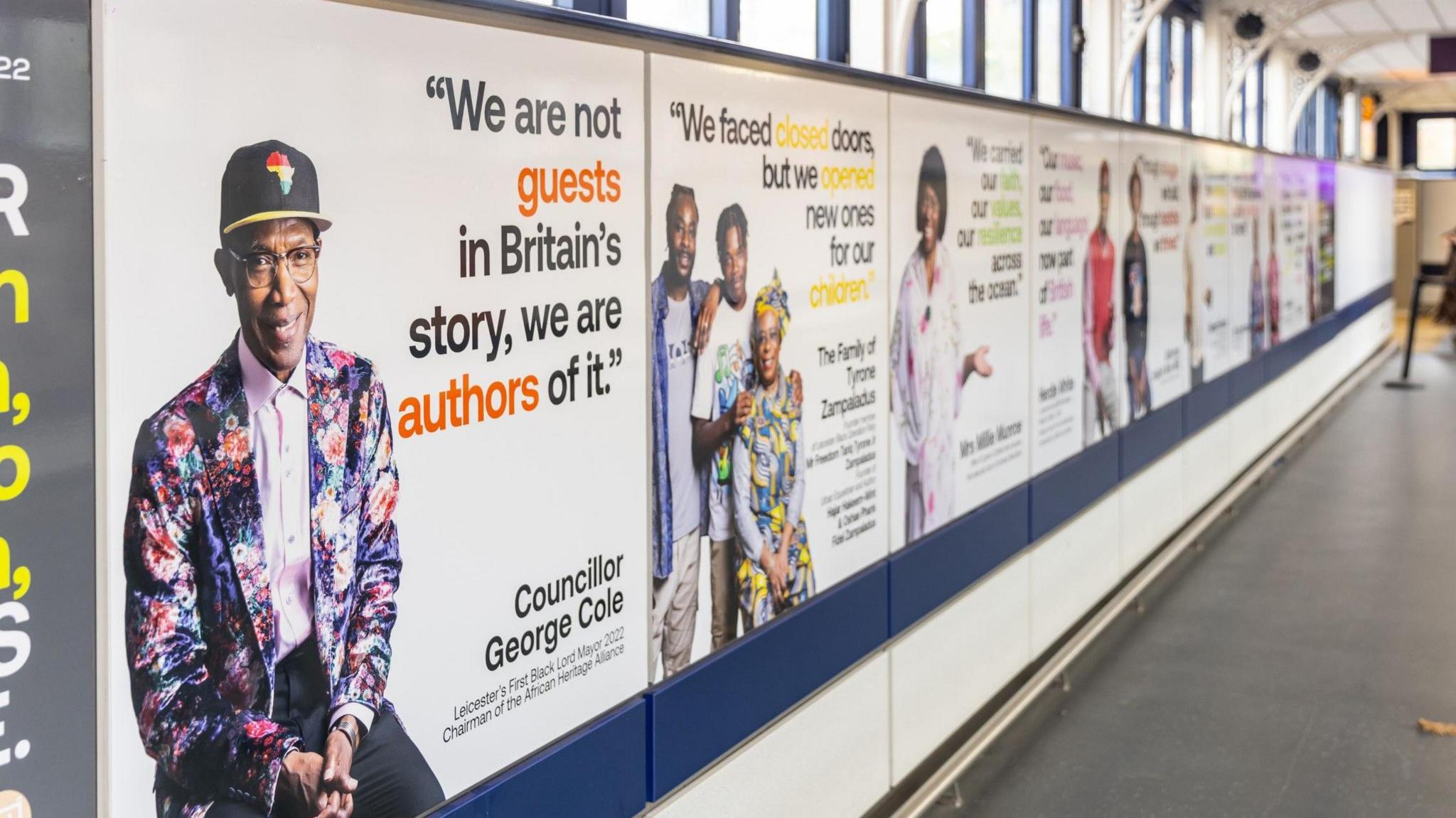
- Published3 October
